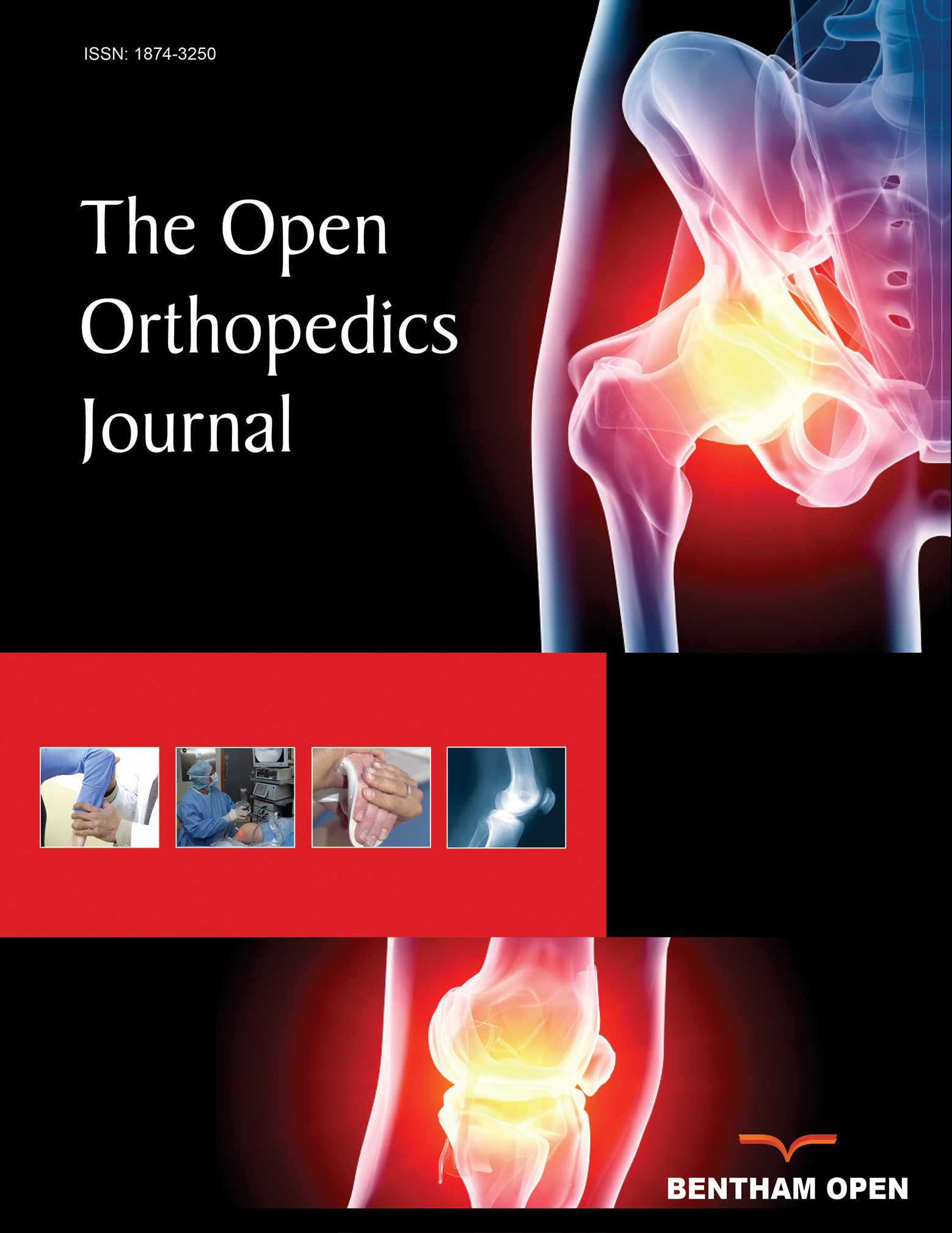All published articles of this journal are available on ScienceDirect.
Patella Infera in an HIV Positive Patient Following Total Knee Arthroplasty
Abstract
A lowering of the patella after total knee arthroplasty is accompanied by pain and a restriction of the range of motion. With its etiology being unclear at present, a multifactorial genesis is under discussion. For the first time, we present a case report describing an HIV infection as a possible cause of patella infera.
A 54-year-old HIV-positive woman developed patella infera (Insall-Salvati ratio 0.6) with a painful restriction of motion 18 months after implantation of a bicondylar surface prosthesis. By changing to a partially coupled endoprosthesis, distalization of the joint line and partial patellar resection, the patient was free of symptoms with a ROM of 0°/0°/110°.
All risk factors known from the literature could be excluded in this case, so that the presence of an HIV infection has to be discussed as a possible cause.


